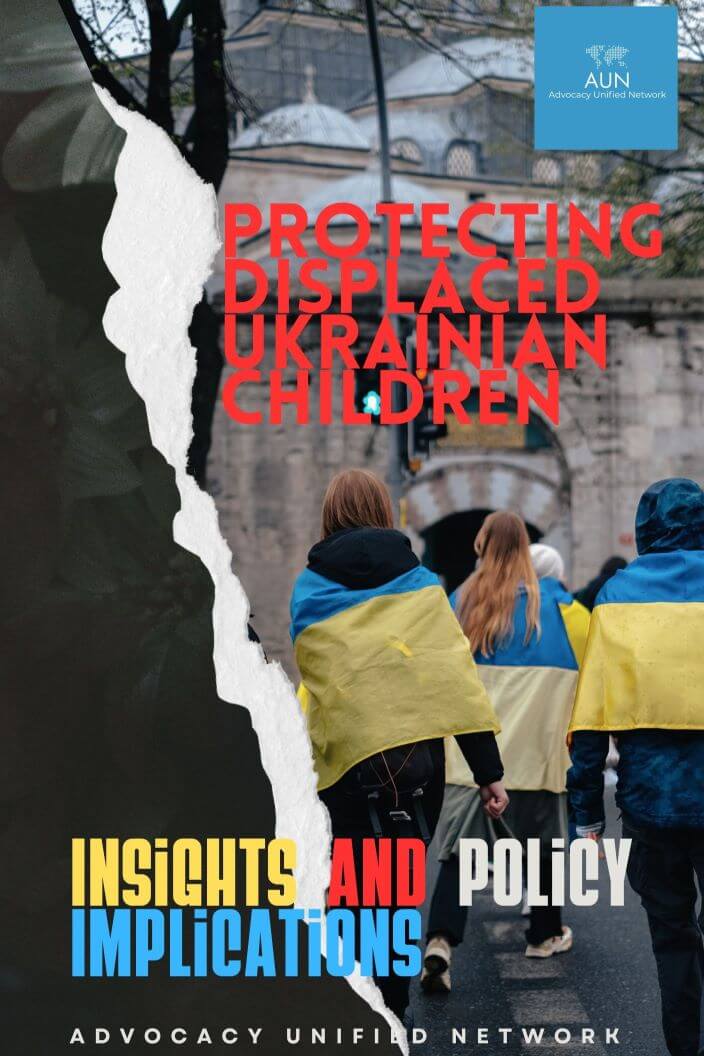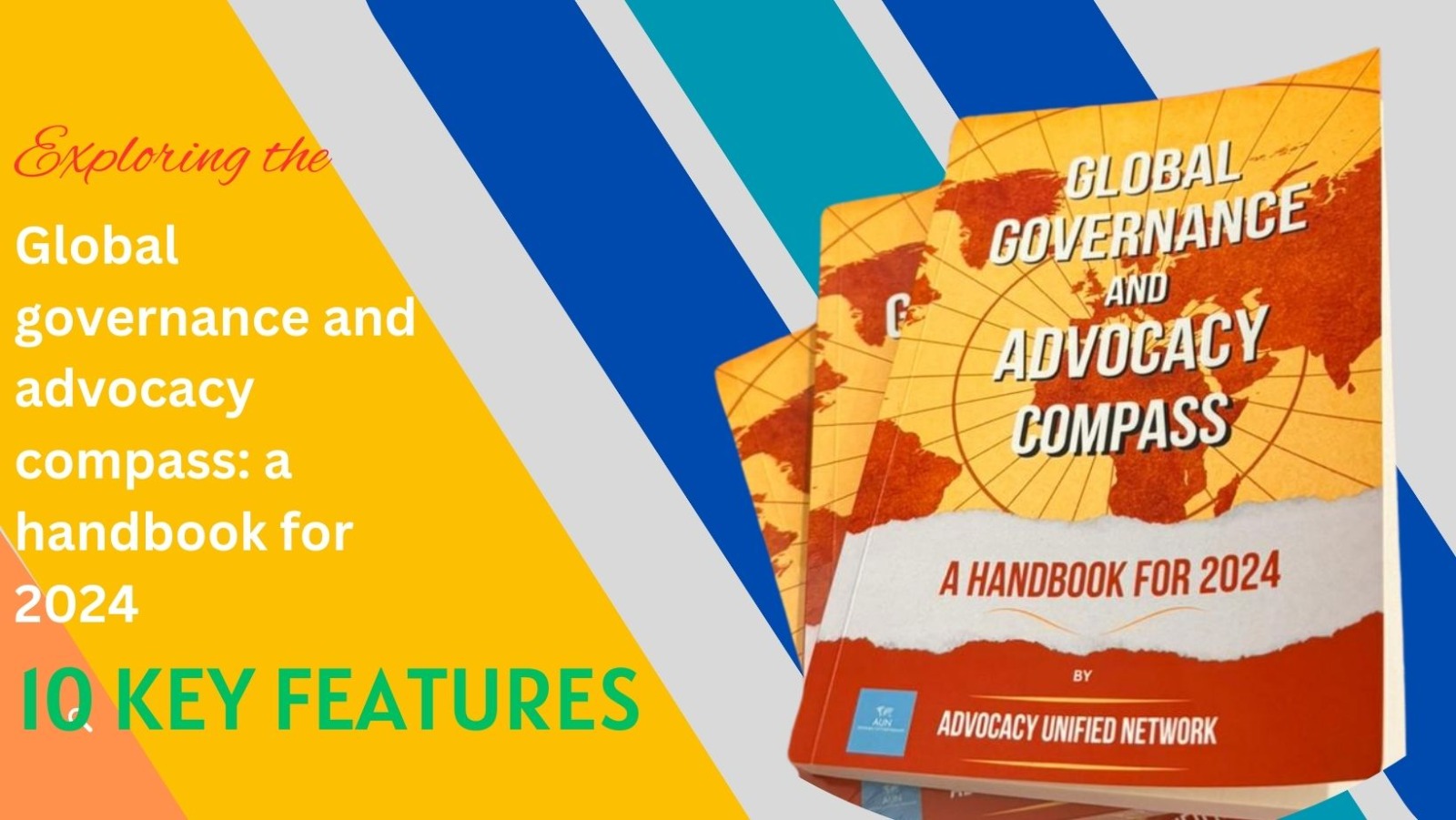The research project conducted by Advocacy Unified Network (AUN) on the protection needs of displaced Ukrainian children in the Ukraine-Russia conflict zone is not only commendable but also of paramount importance. This comprehensive and rigorous study sheds light on the dire situation a highly vulnerable population faces; namely, children caught in a protracted conflict. Below, I provide an elaborate commentary on various aspects of this research project:
Significance of the Research
The research addresses an urgent and critical issue – the protection needs of displaced Ukrainian children. Children are often the most vulnerable in conflict situations, and their specific needs must be understood and addressed.
The significance of the research conducted by the Advocacy Unified Network (AUN) on the protection needs of displaced Ukrainian children in the Ukraine-Russia conflict zone cannot be overstated. This research tackles an urgent and critical issue that carries profound implications for humanitarian efforts, policymaking, and, most importantly, the lives and well-being of a highly vulnerable population – children affected by conflict. Here’s an elaborate exploration of the significance of this research:

Vulnerability of Children in Conflict:
Conflict situations, by their very nature, expose populations to a multitude of dangers. Among those most vulnerable are children. They face unique and heightened risks, including physical harm, psychological trauma, and disruptions to their education and healthcare. Understanding and addressing these specific needs is crucial.
Psychological and Emotional Impact:
Children caught in conflict zones often experience profound psychological and emotional distress. The trauma they endure can have long-lasting effects on their mental well-being. This research recognizes the importance of addressing these invisible scars, emphasizing the holistic nature of child protection.
Family Separation and Disruption:
Conflict frequently results in family separation, leaving children without their parents’ or caregivers’ care and protection. This separation not only exposes them to increased risks but also places them in the challenging situation of fending for themselves. Policy and intervention efforts must consider the impact of family disruption.
Gender-Based Violence and Exploitation:
Girls, in particular, are susceptible to gender-based violence and sexual exploitation in conflict zones. Recognizing and addressing this issue is vital to preserving their dignity and safety. This research underscores the urgency of targeted interventions to protect girls and boys from such abuses.
Implications for Humanitarian Efforts:
Humanitarian organizations and agencies engaged in conflict zone rely on accurate data and insights to tailor their interventions effectively. This research provides invaluable information that can guide the design and implementation of programs aimed at safeguarding the well-being of displaced children.
Policy Formulation and Advocacy:
Policymakers and advocates require robust research to make informed decisions and drive policy changes. This research project equips them with evidence-based findings and concrete policy recommendations, empowering them to advocate for stronger child protection measures.
While this research focuses on the Ukraine-Russia conflict, its findings resonate on a global scale. Children in conflict-affected regions worldwide share similar protection needs. Therefore, the insights and recommendations from this research have the potential to influence child protection policies and practices globally.
Ethical Responsibility:
Above all, this research underscores the ethical responsibility that societies, governments, and the international community bear toward protecting the most vulnerable during times of crisis. It calls upon us to prioritize the rights, safety, and well-being of children, regardless of the circumstances they find themselves in.
In summary, the significance of AUN’s research on the protection needs of displaced Ukrainian children lies in its capacity to shed light on a pressing humanitarian concern, provide evidence-based solutions, and drive positive change. By recognizing the unique vulnerabilities faced by children in conflict zone and advocating for their protection, this research serves as a beacon of hope for a better and more secure future for these young lives amidst the hardships of war. It emphasizes the moral imperative of safeguarding children’s rights and well-being and stands as a testament to the enduring resilience and courage of children in conflict-affected regions.
Methodology
- The mixed-methods approach used in this research, combining qualitative interviews, quantitative surveys, and focus groups, is highly robust. It allows for a comprehensive understanding of the issue, capturing both quantitative data and qualitative insights from the affected children themselves.
Demographic Representation
- The research’s careful consideration of the demographic characteristics of the displaced children’s sample is commendable. By ensuring diversity in age, gender, and ethnicity, the study accurately represents the broader population and provides a holistic analysis.
Extent of Displacement
- The study’s findings regarding the massive scale of displacement within Ukraine, with over half of the country’s children being displaced within a month, are staggering. It underscores the urgency of addressing the protection needs of these children.
Living Conditions and Challenges
- The research aptly highlights displaced children’s challenges, including limited access to basic facilities and the heightened risk of violence. These findings underscore the critical role of humanitarian assistance in alleviating their suffering.
Psychological Impact and Separation from Caregivers
- The research’s focus on the psychological impact of the conflict on children and the separation from caregivers is crucial. It recognizes that the trauma experienced by these children extends beyond physical harm.
Efforts for Protection and Support
- Acknowledging the efforts made by various stakeholders to protect and support displaced children is heartening. It demonstrates that organizations and individuals are dedicated to alleviating their suffering despite the challenges.
The interplay of Gender and Age
- The research’s recognition of the interplay between gender and age in shaping protection risks is vital. Girls’ higher vulnerability to gender-based violence and older children’s increased risk of recruitment into armed groups highlights the need for tailored interventions.
Policy Implications
- The section on policy implications and recommendations is well-structured. It evaluates existing policies, identifies gaps, and provides a set of comprehensive recommendations. These recommendations are evidence-based and cover crucial aspects of child protection.
Feasibility and Challenges
- Considering the current context, the discussion on the feasibility of implementing policy recommendations is pragmatic. Recognizing potential challenges and proposing strategies to overcome them reflects a thoughtful approach.
Call to Action
- The concluding call to action is a compelling and heartfelt appeal. It emphasizes our ethical responsibility in protecting and supporting these vulnerable children. It also highlights the need for collective efforts from policymakers, practitioners, and stakeholders.
Global Relevance
- While the study focuses on the Ukraine-Russia conflict, its findings and recommendations have global relevance. Children worldwide face similar protection challenges in conflict zones, making this research a valuable global resource for policymakers and humanitarian organizations.
In conclusion, the Advocacy Unified Network’s research project on the protection needs of displaced Ukrainian children is a significant and timely endeavor. It combines rigorous research methods, comprehensive data analysis, and thoughtful policy recommendations to address a pressing humanitarian concern. By shedding light on the challenges faced by these children and providing evidence-based solutions, this research serves as a valuable resource for policymakers and practitioners. It advocates working towards the protection and well-being of children in conflict-affected areas. It underscores the importance of prioritizing children’s rights and safety in times of crisis and calls on society to unite in their support and protection.
Commentary by:
Sam Polkar
https://orcid.org/0009-0004-8659-6809
Citation
Polkar, S. (2023). Shielding Innocence: Safeguarding Displaced Ukrainian Children in Conflict Zone. Advocacy Unified Network. https://doi.org/10.57939/F6H4-Y962





